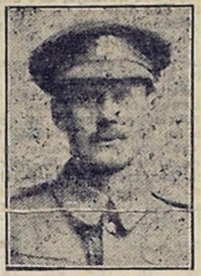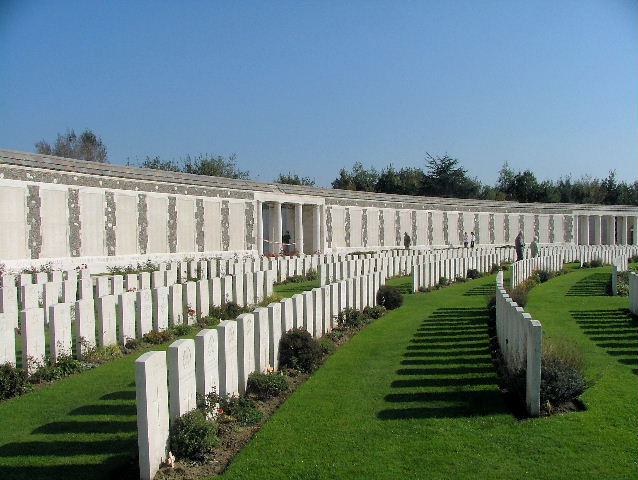Name
Alexander John Gregory
1885
Conflict
First World War
Date of Death / Age
10/10/1917
32
Rank, Service Number & Service Details
Corporal
200506
Princess Charlotte of Wales’ (Royal Berkshire) Regiment
1/4th Bn.
Awards: Service Medals/Honour Awards
British War and Victory medals
Cemetery/Memorial: Name/Reference/Country
TYNE COT MEMORIAL
Panel 105 to 106 and 162
Belgium
Headstone Inscription
NA
UK & Other Memorials
Hitchin Town Memorial, St Mary's Church Roll of Honour (Book), Hitchin, Aston War Memorial, St Mary's Church Roll of Honour, Aston, We are not aware of any memorial in Aston End
Pre War
Alexander was born in 1885 in Aston near Stevenage and christened on 13 December 1885. His parents were John Benjamin and Sarah Jane Gregory (née Sinfield). They had married om 23 June 1883.
In 1891 the family were living at Aston End, Aston, Nr. Stevenage. Present were both parents: John (32) and Sarah (27), with John and working as an assurance agent. Their children were: William A (9), Eleanor (7), Alexander John (5), Annie T (3) and Frank (1).
In 1901 the family were still living at Aston End. John died before the census leaving Sarah a widow at 37. The children at home were: Alexander, now 15 and working as an ordinary agricultural labourer, Annie and James Henry (2).
By 1911 Alexander had left home as was living in Canonbury Street, Berkeley, Gloucestershire, working as a domestic gardener and boarding with the Copper family. His mother remained in Aston and was working as a midwife – she qualified in 1903. Her children at home were: Frank, Rachel (18) and James. Her father William Sinfield (73) was also living with them. her son Frank, who was also killed emigrated to Canada on 11th May 1912.
In 1913 his mother married Farmer Gates and lived at The Moorhen's Inn, Hitchin Hill, Hitchin.
After his death she was recorded as living at The Three Moorhens, Hitchin Hill, Hitchin and is believed to have married Farmer Gates in 1913.
Before joining up he was in the employ of Mr S.S. Burger of Bragbury and later he worked in Berkshire.
Officially Alexander was recorded as born in Aston Stevenage, Herts. and residence of Hitchin, Herts. when he enlisted in Reading.
Wartime Service
He was given Regimental Number 200506 in the 2/4th Battalion of the Regiment and sent to France.
He was Mentioned in Despatches for taking a Company with ammunition to the Oxford & Buckinghamshire Regiment. They went on hands and knees across half a mile of ground under fire to deliver it.
Alex was to lose his life in the closing stages of one of the major British offensives, The Battle of Passchendaele. The offensive had been launched on 31 July 1917 and continued until the fall of Passchendaele village on 6 November. The area had suffered the heaviest rains it had seen for 30 years and this, combined with intensive shelling from both sides, had turned the ground into a hellish morass.
On the 9th October 1917 the Battalion were located in two trenches called Canopus Trench and California Drive, near a point called Winchester Farm, approximately 2 miles East of Passchendaele. They had been in the Front Line since the 27th September and had been fighting in terrible conditions. The following day the Battalion occupied shell holes near the village of Arbre under extremely trying conditions. The local newspaper reported that he had been home on leave and had rejoined his regiment during a rest period and that, after leaving the trenches, and although about two miles from the front-line, was killed by a stray shell, which killed and wounded several men. Alexander was buried and died about 10 minutes later. He was due for another stripe, but was killed before it was awarded.
Additional Information
After his death sums of £2 6s 4d each were authorised to go to his mother and sisters Eleanor (White), Annie and another sister Rachel (Ballard) received £2 6s 3d – all authorised on 14 January 1918. On 20 February 19120 another 5s 9d went to his mother, on 8 April 1918 £2 7s 9d to his brother Frank. On 18 November 1918 £2 7s 9d to his brother James, and finally a war gratuity of £15 was paid to his mother on 18 May 1920.
His pension cards record Sarah Jane Gregory, his mother, as his dependant, living at The Three Moorhens, Hitchin Hill, Hitchin, although this was later amended to 7 Taylors Cottages, Old Park Road, Hitchin. The pension details are not recorded.
Two other brothers also served, Frank with the Canadians and who died on 2 September 1918, and one with the Herts Yeomanry.
Acknowledgments
Adrian Dunne, Paul Johnson, David C Baines, Jonty Wild



